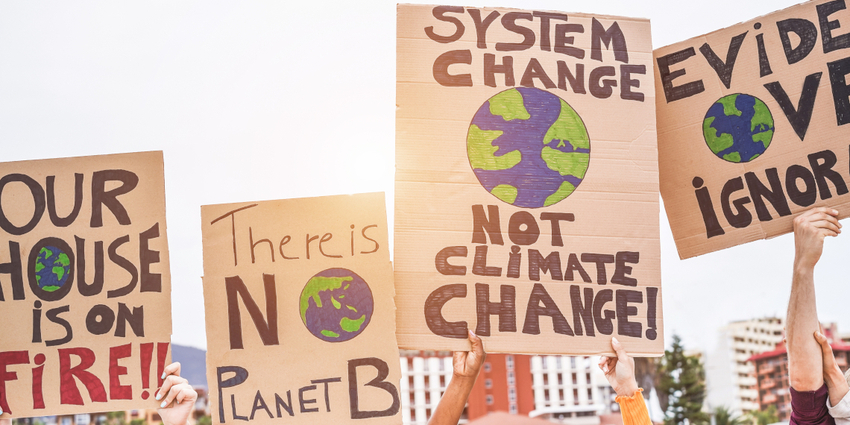There are enough urgent economic challenges for Germany, Europe, and the world. However, the discussion at this year's Leibniz Economic Summit on 2 February 2022, repeatedly came down to one central point: the decarbonization of the German economy – and the debate about how much growth and what costs are involved.
“We have to ask ourselves what we want to transform and invest toward,” said Jan Pieter Krahnen, Director of the Leibniz Institute for Financial Research SAFE, in the debate with the heads of the other economic research institutes under the Leibniz Association. The green transformation dominates all areas of life and the economy, Krahnen added, and represents an overarching policy goal for the first time since German reunification. “The concept for this huge movement has not yet been thought through,” Krahnen said, referring to the financing and capital market side, for example.
The taxonomy pushed by the European Commission to classify sustainability is not a good solution, he said. “The taxonomy is based on a binary categorization in which rates of change play no role,” the SAFE Director explained, “this is a conceptual mistake and cannot bring about a process of change but only a snapshot.” Change, however, must be valued, he said, because “change becomes expensive.”
Clemens Fuest, president of the Ifo Leibniz Institute for Economic Research at the University of Munich, compared the taxonomy to a planned economy. Instead, he said, it is necessary to discuss assessment instruments and to flank the transformation of the economy socially. Real production processes would clash with current planning procedures. “It is the right thing for Germany to participate in climate protection since we are contributing to a global public good,” Fuest said, “but it is obvious that climate policy does not bring an increase in prosperity for Germany.”
Viewing the transformation as a growth program was also illusory, said Stefan Kooths of the Kiel Institute for the World Economy. On the contrary, it would require very high levels of investment in the coming years, straining Germany’s production capabilities, which could grow less strongly anyway due to demographic trends. The opportunities for the real economy are also limited. The transformation holds out the prospect of returns in 20 to 30 years, but from the perspective of the next decade, there can be “no double dividend of growth and efficiencies of green transformation,” Kooths said.
Marcel Fratzscher disagreed with these points. The current concepts for measuring growth are too narrowly defined and transformation is a growth engine that promotes prosperity “because it preserves our livelihood,” said the president of DIW Berlin – German Institute for Economic Research. Above all, however, fossil fuels would have to become significantly more expensive to make the transformation socially acceptable. “So far, the German government did a proper job, but the transformation can only succeed if there is a high level of social acceptance,” Fratzscher emphasized.
Who bears the costs of transformation?
Achim Wambach, president of the Center for European Economic Research in Mannheim, argued that the discussion about different measures of growth is not new. Gross domestic product as a measure, however, shows where the jobs are and where people earn their money. Grid expansion and the expansion of renewable energies have been discussed for just as long, he said. “We need to speed up public procurement procedures that could otherwise cost us years,” Wambach said.
Thomas Bauer of the RWI Essen – Leibniz Institute for Economic Research also said that Germany would not make any progress in climate policy without tackling shortages of skilled workers. Workers are needed to expand the networks. Moreover, the declared climate goals cannot be achieved “if we do not think internationally.” Germany must participate in the emergence of an international market for renewable energies, for instance with minimum CO2 prices, he said.
Oliver Holtemöller of the Halle Institute for Economic Research criticized the fact that there was not enough public transparency about who would bear the costs of decarbonization. The necessary investments would also raise distribution issues. “This transformation will also produce losers,” he warned. For example, while lignite is not an energy source with a future, he said, mining areas could be disadvantaged for years to come without countermeasures. Energy prices also hit different population groups in different ways, he said. “There is the impression that more debt or more expansive fiscal policy can mask these problems,” Holtemöller said. Policymakers need to take economic efficiency into account and allow market forces to take effect, both in terms of climate policy and pandemic control, he said.

